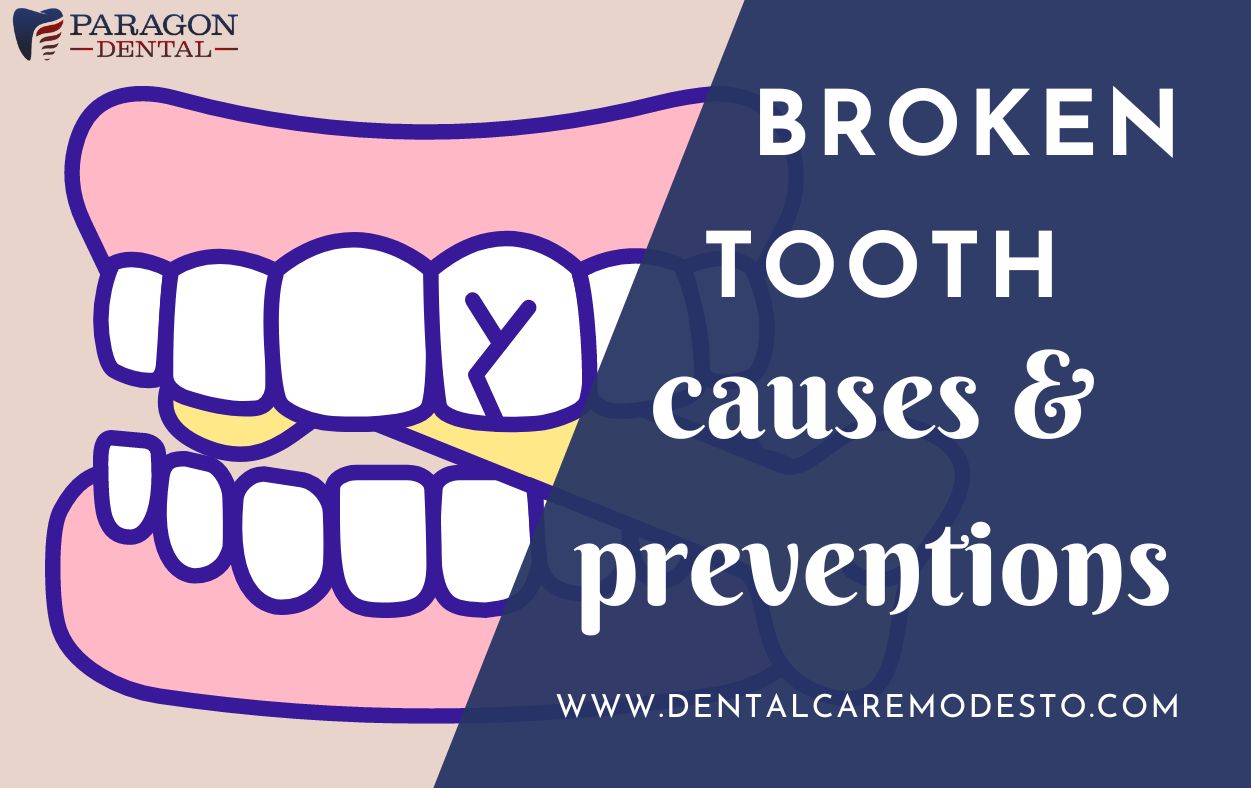
Broken Tooth Causes and Prevention: A Dental Emergency Explained
A broken tooth can strike unexpectedly, causing pain, discomfort, and an urgent need for immediate attention. This is of utmost importance when it comes to dental emergencies. Understanding the causes behind such incidents and taking preventive measures can help you safeguard your dental health and potentially avoid a dental emergency.
In this blog post, we will delve into the common causes of broken teeth. We will also explore effective preventive strategies that can significantly reduce the risk of experiencing a broken tooth. By gaining insights into these causes and implementing preventive measures, you can take proactive steps to maintain your oral health and minimize the chances of encountering a dental emergency.
Common Causes of Broken Tooth:
A broken tooth can occur due to various reasons. Understanding these causes can help you identify potential risks and take preventive measures to protect your teeth. Let’s explore some of the common causes of broken teeth:
- Accidents and Trauma: One of the leading causes of broken teeth is accidents or trauma to the mouth. This can include falls, sports-related injuries, car accidents, or any impact on the face. The sudden force applied to the tooth can result in fractures or complete tooth breakage.
Children are susceptible to traumatic injuries as well. When a child begins learning to walk, they are also exposed to the risk of tooth fractures.
The front teeth of the upper jaw are the most commonly affected by such injuries.
- Dental Decay: Tooth decay occurs when bacteria in the mouth produce acids that gradually erode the tooth’s protective layer, causing it to weaken over time. As the tooth becomes weakened, normal chewing and biting forces from everyday food consumption can lead to its breakage.
- Large fillings: Large dental fillings can risk the tooth’s structural integrity over time. As fillings age, they may weaken or disintegrate, diminishing their ability to support the tooth adequately. Consequently, the tooth can become vulnerable to fractures.
- Biting on Hard Objects: Biting on hard objects can strain the front teeth excessively. Habits like biting nails or using teeth as tools can weaken the tooth structure over time. These actions exert forces the teeth are not designed to handle, increasing the risk of fractures or breakage.
- Chewing on Hard Foods: Chewing on hard foods such as popcorn kernels, ice cubes, or uncooked grains can put significant pressure on the back teeth, making them more prone to fractures.
- Bruxism (Teeth Grinding): Persistent teeth grinding, known as bruxism, can place excessive force on the teeth, wearing them down and making them more susceptible to fractures. Bruxism is often associated with stress, anxiety, or an abnormal bite.
- Teeth misalignment: The arrangement of teeth can also play a role in the vulnerability to tooth fractures. Some individuals have a dental condition called an overjet, where the upper front teeth are positioned significantly further forward than the lower teeth.
This makes them more susceptible to direct impact, especially when faced with external forces.
Prevention of Broken Teeth
- Accidents and Trauma:
- Wear appropriate protective gear during sports or activities with a higher risk of dental injuries.
- Avoid situations that may result in falls or facial impacts.
- Use seat belts and child safety seats in vehicles to minimize the risk of dental injuries during accidents.
- Tooth Decay:
- Practice good oral hygiene, including regular brushing with fluoride toothpaste and flossing to remove plaque.
- Maintain a balanced diet, limiting sugary and acidic food and drinks.
- Visit your dentist regularly for check-ups and professional dental cleanings.
- Consider dental sealants or fluoride treatments to strengthen the teeth and protect against decay.
- Large Fillings:
- Seek regular dental check-ups to monitor the condition of existing fillings.
- Discuss with your dentist the option of replacing large fillings with more durable materials.
- Follow good oral hygiene practices to maintain the health of the filled tooth.
- Biting on Hard Objects:
- Avoid biting on hard objects such as nails, pens, or ice.
- Develop alternative habits, like using a stress ball or chewing sugarless gum, to redirect the urge to bite.
- Tooth grinding:
- Consider using mouthguards or bite guards during excessive tooth stress activities, such as teeth grinding or contact sports.
- Tooth misalignment:
- Consult with an orthodontist to evaluate tooth alignment and discuss treatment options if a significant overjet or other misalignment is present.
- Follow orthodontic recommendations for braces, retainers, or other appliances to correct tooth arrangement issues.
Implementing these preventive measures can significantly reduce the risk of broken teeth and promote overall dental health. Remember, it’s essential to consult with your dentist for personalized advice based on your specific dental needs.
Conclusion
In conclusion, broken teeth can occur due to various factors. Recognizing these causes and understanding the preventive measures can help safeguard your dental health and minimize the risk of dental emergencies.
Need emergency dental services in Modesto?
At Paragon Dental, we strive to provide high-quality dental care to our patients.
Call us now for an appointment at (209) 548-0100, or come by our clinic at Paragon Dental, 1108 Oakdale Road, Suite A, Modesto, California 95355.

